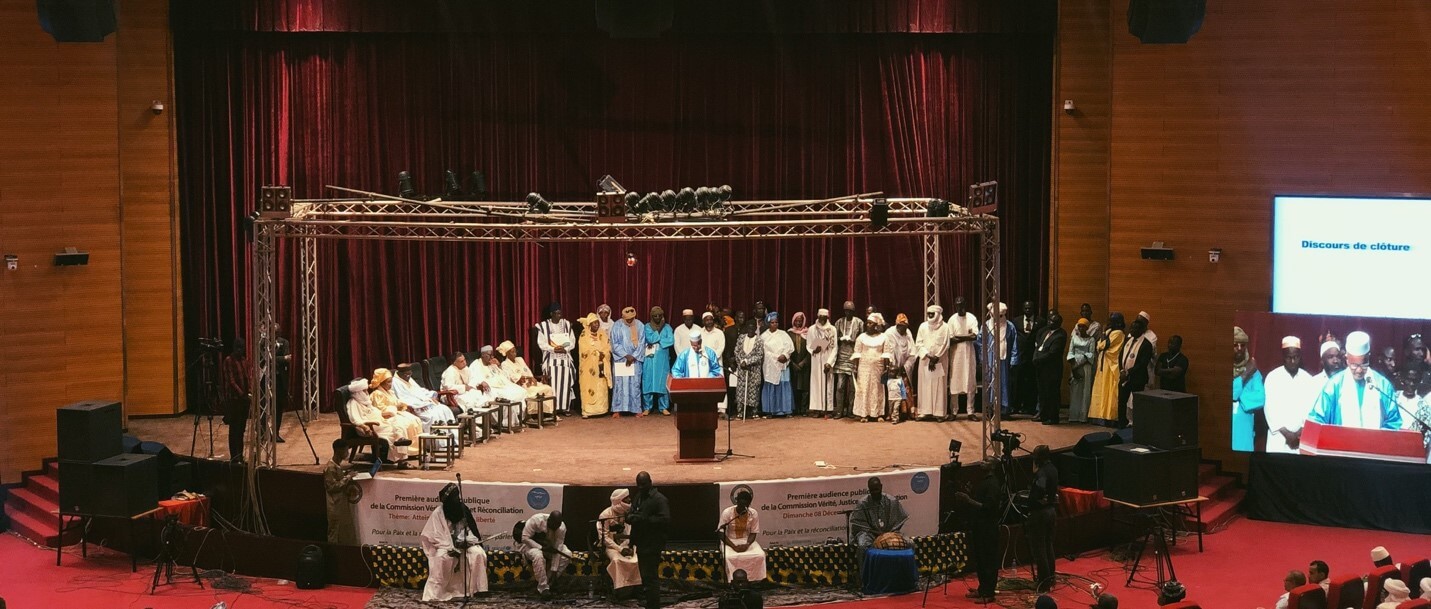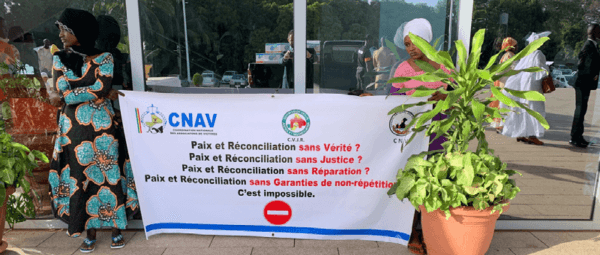
Eight months after the first public hearing of the Truth, Justice and Reconciliation Commission of Mali (TJRC), Lawyers Without Borders Canada reviews this successful experience, analyzes its main findings and explores ways to improve it in its booklet “Le Mali à l’écoute des victimes: leçons apprises de l’organisation des audiences publiques“.
These avenues for improvement are based both on the Malian experience and that of other countries, notably where historical truth-seeking processes have been conducted and with which the TRC is familiar, including Algeria, South Africa, Colombia and Canada to name but a few.
The Truth, Justice and Reconciliation Commission of Mali
The CVJR was created to contribute to the establishment of lasting peace through the search for truth, reconciliation and the consolidation of national unity and democratic values. The TRC is the main transitional justice mechanism operating in Mali.
A banner of the National Coalition of Victims’ Associations, on the day of the hearing
Its mandate covers all the events of the various crises, rebellions and coups d’état that Mali has experienced since 1960. The Commission is responsible, inter alia, for establishing the truth about serious human rights violations, conducting non-judicial investigations to determine the extent of the responsibilities of armed groups or institutions, and proposing measures of reparation, social restoration and reconciliation. The TRC places victims at the center of its work and speaks out.
Serious human rights violations identified by the CVJR include: murder and arbitrary execution; arbitrary arrest or detention; abduction and kidnapping; forced recruitment and attempted recruitment; rape and other sexual violence; looting, theft and destruction of property; enforced disappearance; forced displacement; torture and other cruel, inhuman and degrading treatment; and destruction of cultural heritage.
The TRC is not a court, nor does it try the perpetrators of serious human rights violations. Victims can still go to court to seek justice, even if they have testified at a TRC office.
